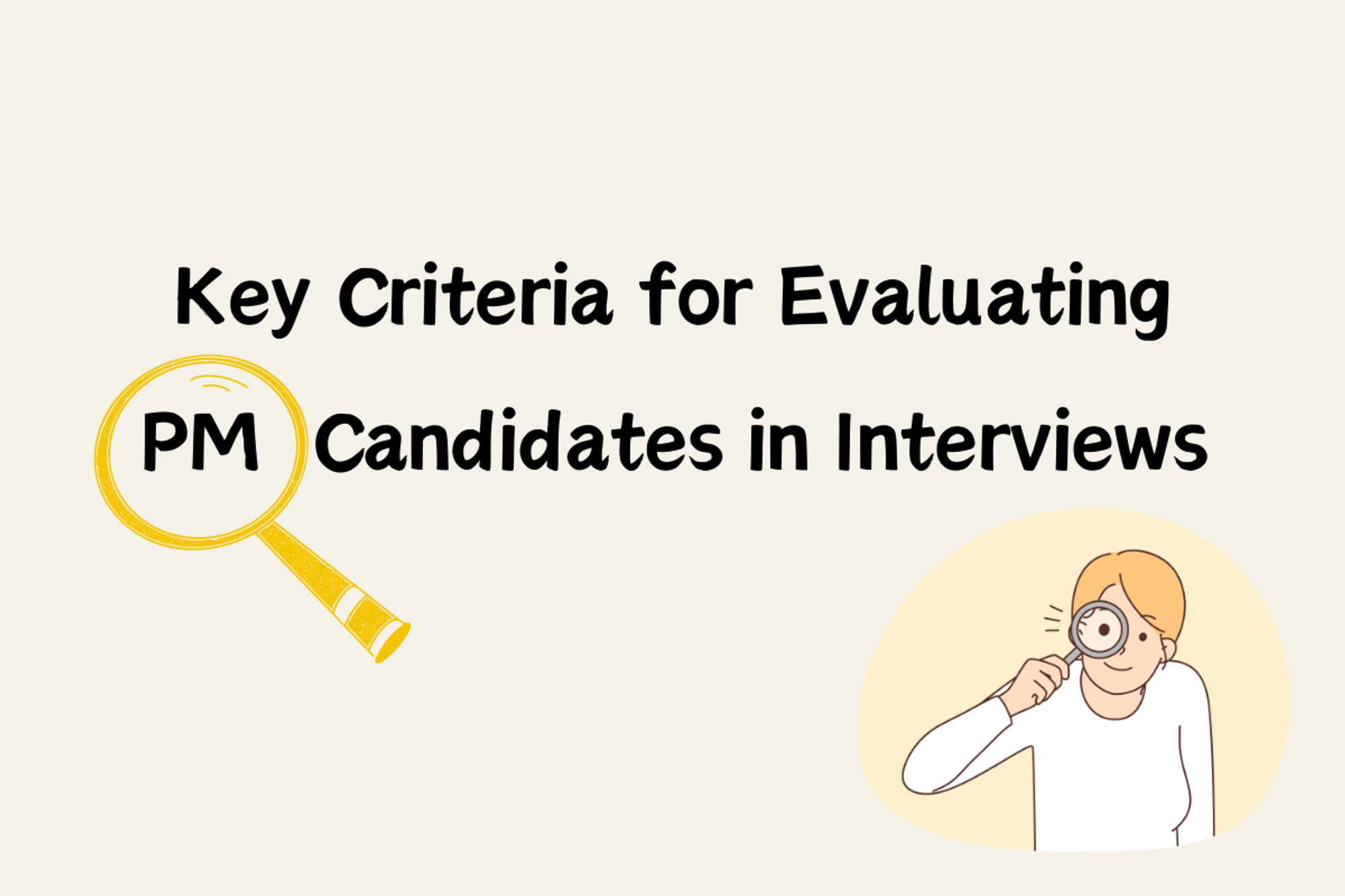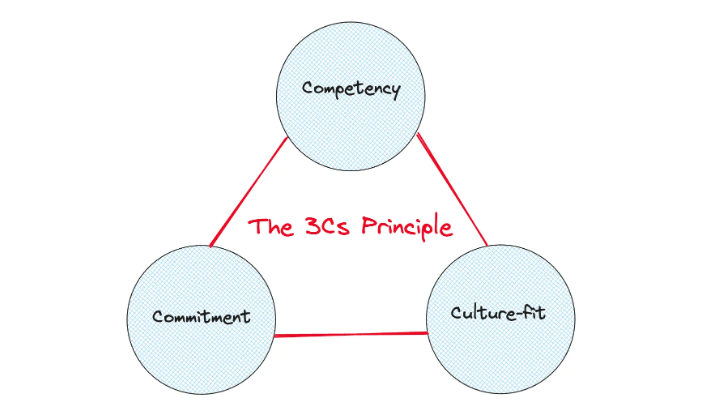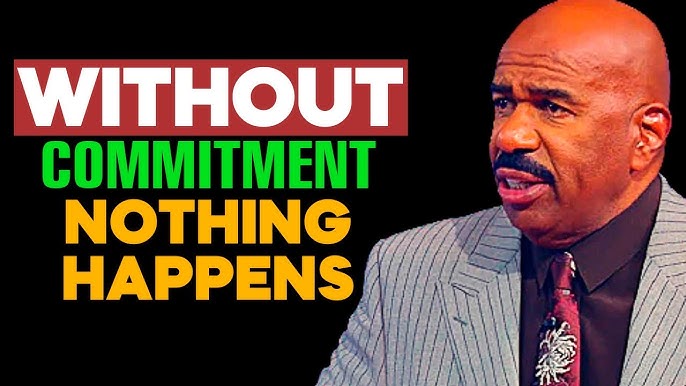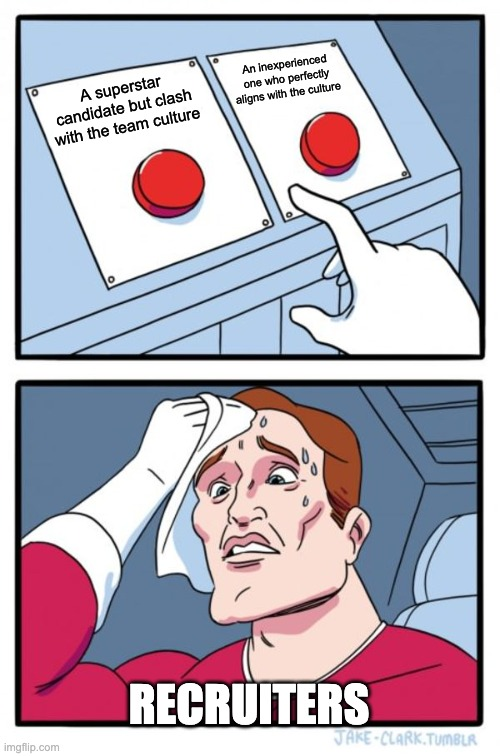The 3Cs Principle: Key Criteria for Evaluating PM Candidates in Interviews
 I recently had a conversation with a friend who’s in the process of hiring Product Managers for their team. Given his recent foray into conducting interview rounds, we took some time to explore what recruiters typically seek during a PM interview and the rationale behind it.
I recently had a conversation with a friend who’s in the process of hiring Product Managers for their team. Given his recent foray into conducting interview rounds, we took some time to explore what recruiters typically seek during a PM interview and the rationale behind it.
Having been involved in the PM interview process at Holistics over the past three years, I thought it would be valuable to share some of these insights, hoping they’ll benefit others who are also in the process of building PM teams.
PM Interview Secret: The 3Cs Principle
When it comes to evaluating candidates in an interview, I often adhere to what I call “The 3Cs Rule”: Competency, Commitment, and Culture-fit. These three criteria serve as guiding principles in my assessment process.

Let’s explore each aspect in detail:
Competency
Competency serves as the cornerstone of any effective PM, and all employers want to recruit outstanding candidates. However, they often overlook a critical distinction: Some qualities can be taught, while others cannot. This oversight can lead to missing out on talented individuals due to a lack of experience, underestimating their potential. Conversely, some companies mistakenly invest too much in candidates hoping to change their skills later, only to find it doesn’t work out.
So, what should we prioritize when evaluating PM candidates?
In my experience, during interviews, I usually focus on qualities that are not easily teachable or require significant time to develop. This includes attributes like raw intelligence, emotional reactivity, and high agency. In contrast, domain knowledge and technical skills can be deprioritized, unless you aimed to hire an experienced candidate due to your training resource constraints.
I also prioritize candidates who demonstrate strong problem-solving and critical thinking skills, because they are essential for PMs to fulfill their responsibilities effectively. While these abilities can be developed through training, they typically align with a candidate’s intelligence and require time to cultivate.
Commitment
In discussions about “Commitment”, there’s a common misconception that candidates should be willing to commit to a company indefinitely. However, I believe it’s more realistic to seek candidates who are capable of committing to the company for the duration we require, allowing us to recoup our investment in hiring and training. Consider the scenario of investing 6-9 months in mentoring and training a PM, only for them to depart after a year - this would result in significant costs for the company. At Holistics, for instance, we typically expect new PMs to commit to a minimum two-year tenure.

So, how should we gauge a candidate’s “commitment rate”? Here are a few tactics I’ve applied:
-
Use Work Experience as a reference: Past work experience history can serve as an indicator of a candidate’s commitment. If a candidate has a history of frequent job changes within a shorter timeframe than expected (e.g., 2 years), it’s essential to delve into the reasons behind these transitions.
-
Evaluate their passion for the PM role: Enthusiasm for the PM position can also reflect the candidate’s commitment. A person loving being a PM might have a higher commitment than those who are still exploring their career path.
Additionally, their past work positions, especially if they’ve held PM or tech-related roles, can also indicate their level of commitment.
-
Ask about their future plans: It’s crucial to discuss the candidate’s career and personal plans for the next 3-5 years. While they may demonstrate commitment to their work and the PM role, they may have other aspirations they intend to pursue in the near future, such as studying abroad. Understanding their long-term plans can help assess their suitability for the role.
Culture-fit
Culture-fit plays a pivotal role in assessing a candidate’s suitability for a PM position. Hiring individuals who aligns with the company’s culture can not only enhance team cohesion and collaboration but also reduce employee turnover - which is usually costly for the company. According to the Society for Human Resource Management (SHRM), poor culture fit leading to turnover can cost an organization between 50-60% of the person’s annual salary.

But, how do we know if a PM candidate fit the company’s culture? Here are a few questions I love to ask to unveil it:
-
“Tell us about your old working environment, what you like and dislike about it.”
-
“Have you ever encountered any conflicts with your boss or colleagues in your previous roles? If so, how did you navigate through them?”
-
“What types of people do you enjoy collaborating with the most, and why?”
-
“Do you have any expectations for your future work environment? What’s driving those expectations?”
These questions offer valuable insights into the candidate’s work style, thought process, and what they’re seeking in their next workplace adventure.
However, drawing from my own experiences, there are a few key considerations to keep in mind:
-
It’s essential to establish clear indicators of an ideal fit before evaluating candidates. Without this clarity, accurately assessing cultural alignment becomes more challenging. For instance, you might not know whether we should hire a qualified candidate who is sometimes emotionally sensitive, potentially impacting their working mood.
At Holistics, we highly values and would like to work with individuals who have a growth mindset, aim to deliver high-qualified product with speed, and more.
-
Interviews, while insightful, may not always paint a complete picture of a candidate’s behavior. Therefore, we should keep a watchful eye during the probation period to ensure alignment with our cultural ethos.
Final Words
I must admit, hiring and training are two of the most costly and challenging responsibilities I have ever experienced. According to the Society for Human Resource Management, the average time-to-hire in the US is 36 days, and can be even higher in some industries. At Holistics, if I remember it correctly, it even stretches to 3-4 months to find a qualified PM candidate.
While each PM interview may vary based on the company’s unique needs and culture, I believe adopting helpful frameworks like The 3Cs Rule can help recruiters identify candidates who not only possess the requisite skills but also align with the organization’s values and long-term goals. This approach not only reduces hiring costs but also paves the way for building high-performing PM teams in the future.